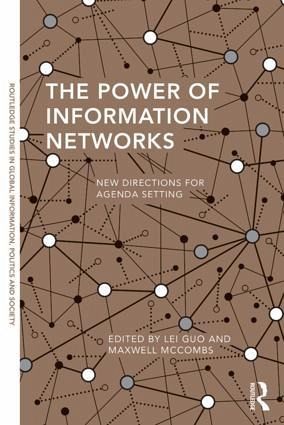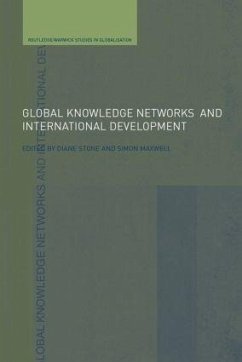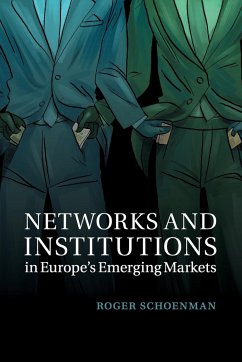
The Power of Information Networks
New Directions for Agenda Setting
Herausgeber: Guo, Lei; Mccombs, Maxwell

PAYBACK Punkte
30 °P sammeln!
The news media have significant influence on the formation of public opinion. Called the agenda-setting role of the media, this influence occurs at three levels. Focusing public attention on a select few issues or other topics at any moment is level one. Emphasizing specific attributes of those issues or topics is level two. The Power of Information Networks: The Third Level of Agenda Setting introduces the newest perspective on this influence. While levels one and two are concerned with the salience of discrete individual elements, the third level offers a more comprehensive and nuanced persp...
The news media have significant influence on the formation of public opinion. Called the agenda-setting role of the media, this influence occurs at three levels. Focusing public attention on a select few issues or other topics at any moment is level one. Emphasizing specific attributes of those issues or topics is level two. The Power of Information Networks: The Third Level of Agenda Setting introduces the newest perspective on this influence. While levels one and two are concerned with the salience of discrete individual elements, the third level offers a more comprehensive and nuanced perspective to explain media effects in this evolving media landscape: the ability of the news media to determine how the public associates the various elements in these media messages to create an integrated picture of public affairs. This is the first book to detail the theoretical foundations, methodological approaches, and international empirical evidence for this new perspective. Cutting-edge communication analytics such as network analysis, Big Data and data visualization techniques are used to examine these third-level effects. Diverse applications of the theory are documented in political communication, public relations, health communication, and social media research. The Power of Information Networks will interest scholars, students and practitioners concerned with the media and their social and cultural effects.














